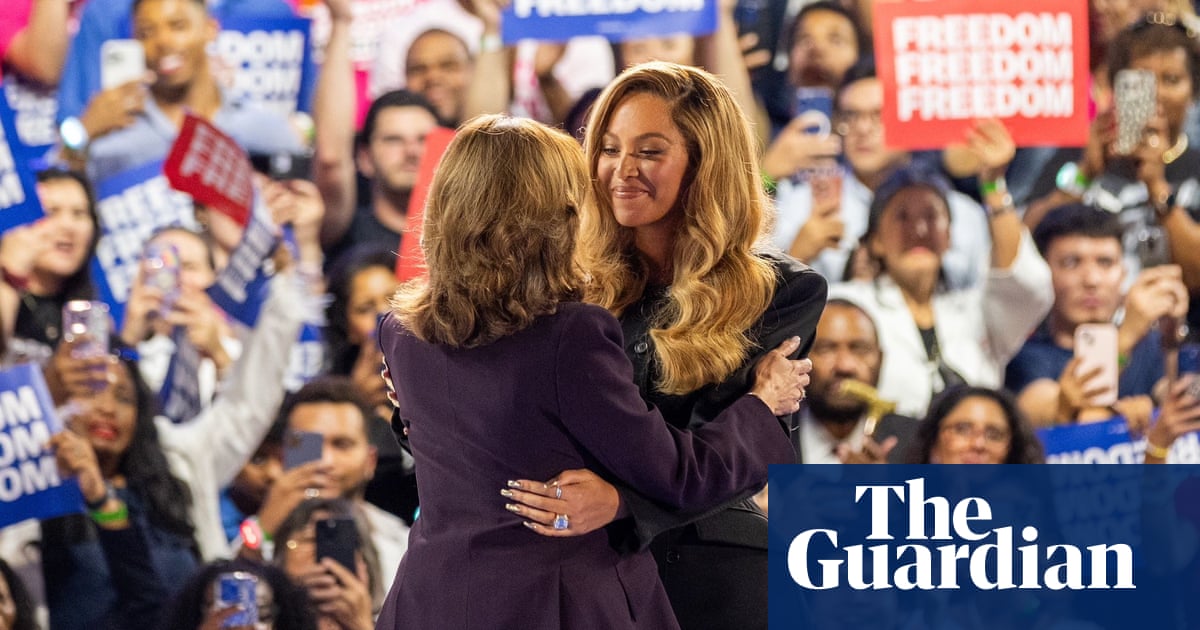Donald Trumplaced into a few celebrities who endorsedKamala Harrisin late night and early morning screeds on Monday, saying he would investigate them to see if they were paid for the endorsements – repeating a common refrain on the right about the star-studded list of Harris supporters.
“How much did Kamala Harris pay Bruce Springsteen for his poor performance during her campaign for president?” Trumpposted in all caps on Truth Socialat 1.34am Monday. “Why did he accept that money if he is such a fan of hers? Isn’t that a major and illegal campaign contribution? …And how much went to Oprah, and Bono???”
He said he would “call for a major investigation” into the issue, claiming Harris was illegally paying for endorsements “under the guise of paying for entertainment” and that these efforts artificially boosted her campaign and crowds.
“IT’S NOT LEGAL! For these unpatriotic ‘entertainers,’ this was just a CORRUPT & UNLAWFUL way to capitalize on a broken system,” Trump wrote.
On Monday morning, he expanded his claims and said without evidence thatBeyoncéwas paid $11m to walk on stage and endorse Harris without performing.
“This is an illegal election scam at the highest level! It is an illegal campaign contribution!Bruce Springsteen, Oprah, Bono and, perhaps, many others, have a lot of explaining to do!!!” Trump wrote in all caps.
Trump is increasingly using the US justice department to carry out his retribution agenda, directing it to investigate his opponents and end investigations into his allies. These moves have led some legal expertsto callthe department Trump’s “personal law firm”.
Trump, a frequent courter of celebrities, has recently taken aim at several high-profile performers who endorsed or otherwise supported Harris.
AfterBruce Springsteenspoke out strongly against the Trump administration for its stripping of freedoms, Trump called the New Jersey icon a “dried out ‘prune’ of a rocker”. Before that, he wrote on Truth Social wondering whether “anyone noticed that, since I said ‘I HATE TAYLOR SWIFT,’ she’s no longer ‘HOT?’”
The law does not ban candidates from paying for endorsements, the Federal Election Commissiontold the factchecking outlet Verifyin 2022. Though, candidates could run into trouble if they don’t specifically list that an expenditure to a campaign was in exchange for an endorsement.
The claims that Harris paid celebrities to endorse her are not new, but Trump didn’t offer any evidence to support them. The Harris campaign has denied it paid anyone to endorse her, and the celebrities involved have also denied they were paid for an endorsement.
Campaign finance reports show Oprah’s production company, Harpo, was paid $1m for a town hall event by the Harris campaign, while Beyoncé’s production company was paid $165,000.
Oprah has strenuously denied being paid any money to endorse Harris. She wrote on Instagram that she “was not paid a dime” but that “the people who worked on that production needed to be paid. And were. End of story.” Her company brought in set design, lights, cameras, crew, producers, benches, chairs – anything required to carry out the event, she said.
Tina Knowles, Beyoncé’s mother,posted aboutfalse claims circulated by the rightwing media personality Candace Owens about Beyoncé getting paid to endorse.
“The lie is that Beyonce was paid 10 million dollars to speak at a rally in Houston for Vice PresidentKamala Harris. When In Fact : Beyonce did not receive a penny for speaking at a Presidential candidate Vice President Kamala Harrris’s Rally in Houston. In fact she actually paid for her own flights for her and her team, and total Glam,” Knowles wrote.
The Harris campaign told Deadlineafter the 2024 electionthat campaign finance laws required them to pay for some costs of a performance, like travel or production, but that the campaign had never paid a fee to artists or performers who appeared on the campaign trail.
A campaign spokesperson told the outlet the campaign had followed all campaign finance laws “religiously”.
